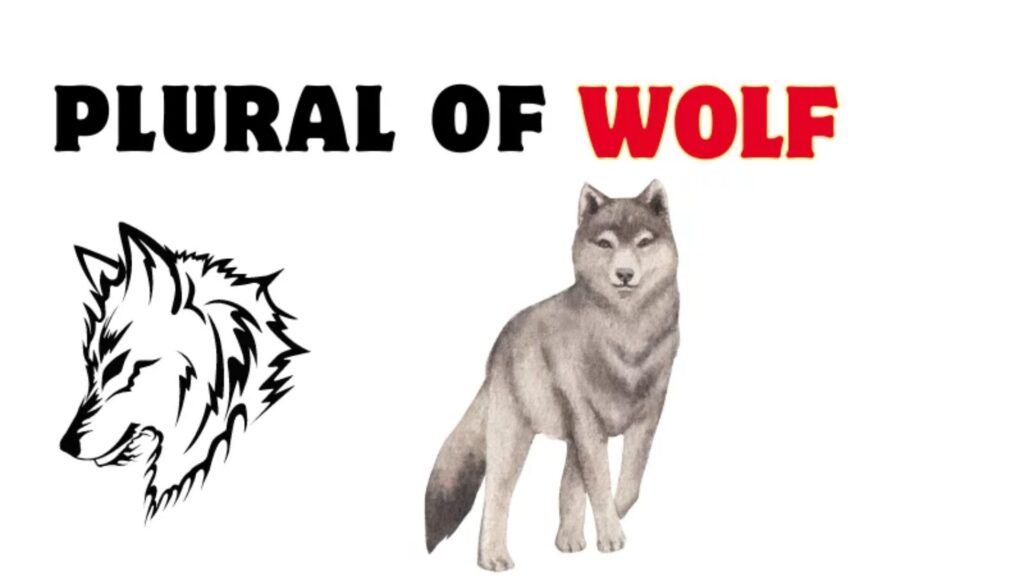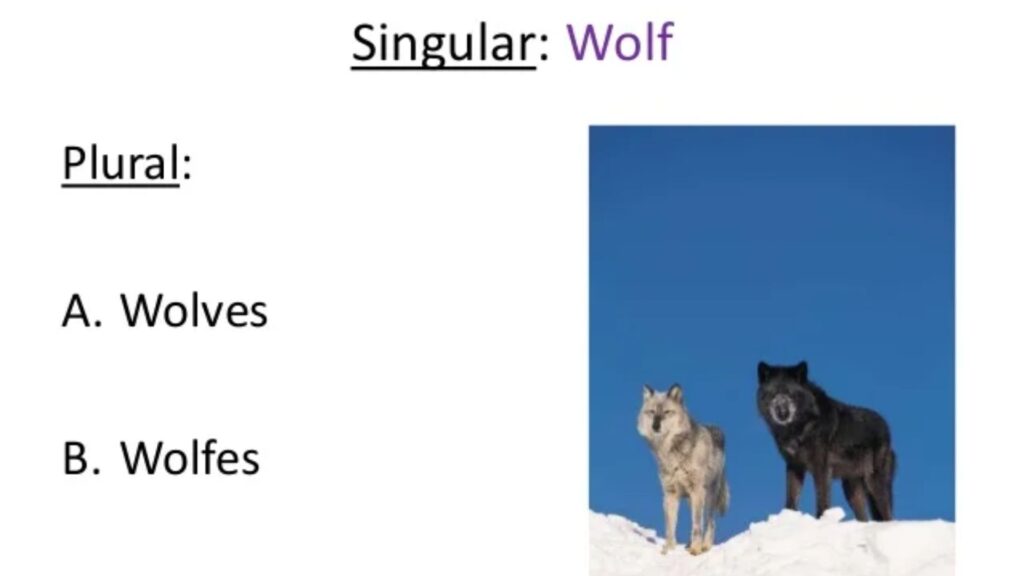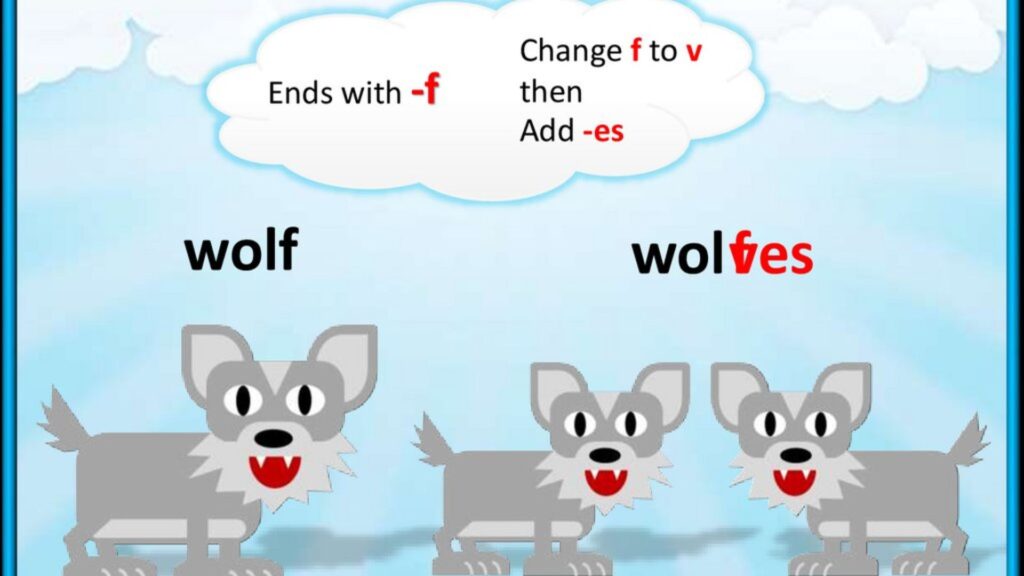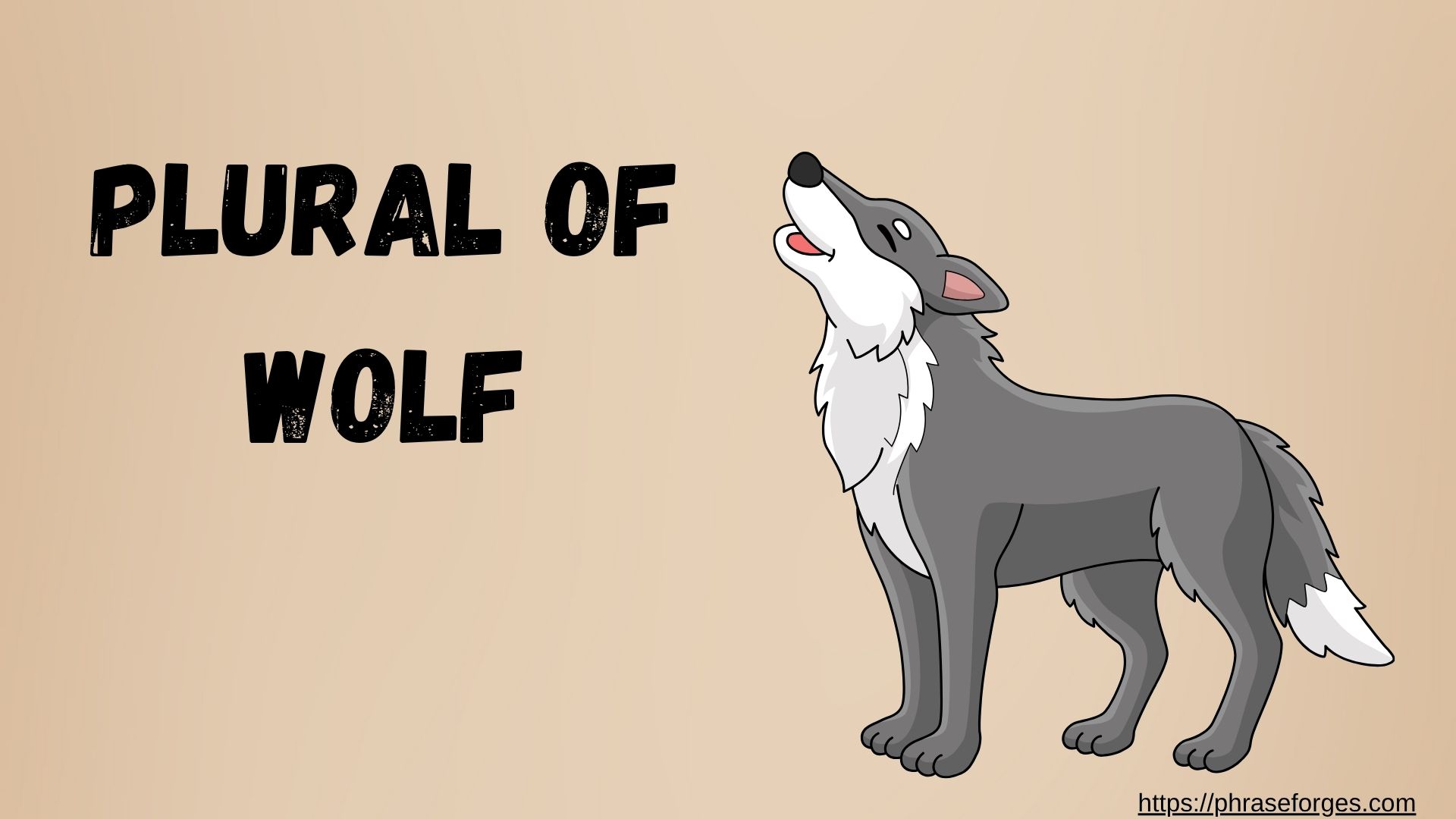When it comes to English, some words don’t follow standard pluralization rules, and “wolf” is one of them. If you’ve ever hesitated between saying wolfes, wolfs, or wolves, you’re not alone. This guide clears up the confusion around the wolf plural form, explains why it changes the way it does, and provides plenty of real-world examples including a printable worksheet to practice.
What Is the Plural of Wolf?

The correct plural of wolf is wolves, not wolfs or wolfes. This happens because “wolf” is an irregular plural noun ending in -f, which changes to -ves in the plural.
📌 Rule: For most nouns ending in -f or -fe, replace -f/-fe with -ves in the plural.
- wolf → wolves
- knife → knives
- wife → wives
Common Mistakes to Avoid
❌ wolfes (incorrect plural)
❌ wolfs (incorrect plural)
These errors occur because learners often apply regular pluralization rules (adding “s”) without knowing about English irregular pluralization.
Why Does Wolf Become Wolves? (Etymology Insight)
The word “wolf” derives from Germanic origins, specifically the Old English “wulf,” linked to the dog family (Canidae) that includes foxes, coyotes, and wolves. English borrowed many irregular plural rules from older Germanic forms.
This is why similar words like “leaf” (leaves) or “calf” (calves) also shift to -ves.
Wolf Singular or Plural? (Usage in Sentences)

Here’s how to distinguish between wolf singular form and wolves plural in everyday writing:
- Singular: A lone wolf howled under the moon.
- Plural: The pack of wolves hunted together in silence.
Email Scenario Example (Formal Use)
Subject: Wildlife Report Submission
Hi Dr. Nguyen,
I’ve completed the field survey on gray wolf (Canis lupus) sightings this month. We observed a pack of wolves near the northern boundary of Yellowstone. One lone wolf was spotted further east.
Attached are the photos and detailed notes.
Best regards,
Samantha Greene
This email correctly uses both singular and plural forms naturally.
Wolf Plural Sentence Examples (Everyday Contexts)
Here are practical ways to use wolf plural sentences:
- Classroom setting: “Today we’ll discuss how wolves adapt to cold climates.”
- Storytelling: “The wolves surrounded the campsite, their eyes glowing in the dark.”
- Science context: “Wolves belong to the dog family, along with foxes and coyotes.”
Wolf vs Wolves (Grammar Breakdown)
- Wolf (Singular): Refers to one animal.
- Wolves (Plural): Refers to more than one.
- Wolf plural word: Always wolves, regardless of sentence context.
✅ Correct: “We heard wolves howling in the forest.”
❌ Incorrect: “We heard wolfs howling in the forest.”
Wolf Grammar Confusion (Wolfs vs Wolves)

This confusion often arises in learners because of English pluralization rules. While “wolf” is irregular, most nouns simply add “-s” or “-es.”
🔑 Remember: If it ends in -f or -fe, check if it changes to -ves.
Examples:
- wolf → wolves
- shelf → shelves
- life → lives
Worksheet: Practice Wolf Plural Form
Here’s a short worksheet to test your understanding of the wolf plural form and similar irregular nouns:
A) Fill in the blanks:
- One ___ howled at the moon. (wolf)
- Several ___ were spotted in the snowy mountains. (wolf)
- The ___ is known as a predator in the dog family. (wolf)
- Scientists tagged three ___ for tracking purposes. (wolf)
B) Correct the sentences:
- The wolfs are hunting in packs.
- We saw many wolfes during the trip.
(Answers: wolves, wolves; The wolves are hunting in packs; We saw many wolves during the trip.)
Email Practice Example
Subject: Grammar Exercise Submission
Hi Professor Adams,
Here’s my completed assignment on irregular plural nouns. For example, the wolf plural form is “wolves,” not “wolfs.” I’ve included five sentences demonstrating its use, such as:
- “A wolf hunts alone.”
- “Wolves often travel in packs.”
Please let me know if further revisions are needed.
Thanks,
Kevin Torres
Wolf Irregular Plural Rule (Quick Reference Table)
| Singular | Plural | Category |
|---|---|---|
| Wolf | Wolves | Irregular plural ending in -ves |
| Knife | Knives | Irregular plural ending in -ves |
| Calf | Calves | Irregular plural ending in -ves |
Key Takeaways
- The plural of wolf is wolves, following the irregular plural ending in -ves rule.
- Avoid incorrect forms like wolfes or wolfs.
- Use wolves in both formal (emails, reports) and casual contexts.
- Remember: This rule also applies to similar words ending in -f or -fe.

